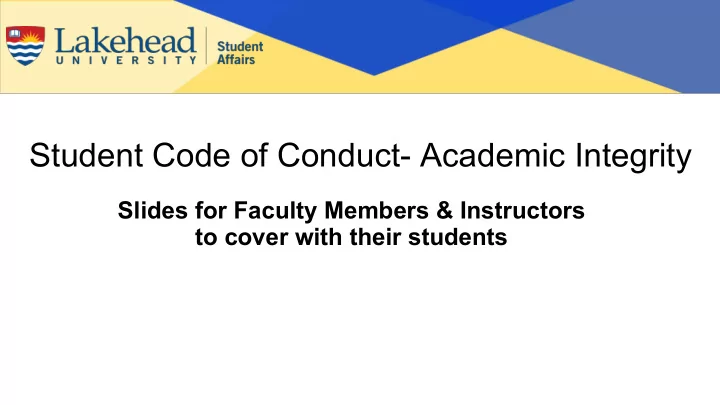

Student Code of Conduct- Academic Integrity Slides for Faculty Members & Instructors to cover with their students
Where to find the Code 1. Student Life Page 2. Policies & Procedures Library
Course Syllabus Statement “A breach of Academic Integrity is a serious offence. The principle of Academic Integrity, particularly of doing one’s own work, documenting properly (including use of quotation marks, appropriate paraphrasing and referencing/citation), collaborating appropriately, and avoiding misrepresentation, is a core principle in university study. Students should view the Student Code of Conduct- Academic Integrity - for a full description of academic offences, procedures when Academic Integrity breaches are suspected and sanctions for breaches of Academic Integrity”
Common Forms of Academic Dishonesty 1. Plagiarism • When a student does not give credit (in-text referencing, footnoting, endnoting, quotations or indentations) to the ideas, phrases, tables or illustrations of another person. • If the student did not come up with the concept or idea themselves, it should be referenced in some way. 2. Cheating • When a student accesses information for or during an examination or test that they were not allowed to access. • For example, accessing test or exam banks directed for instructors only and/or purchasing or selling tests or exams from/to other students. • Other cheating examples include writing answers on an object or your person, accessing papers or electronic information during a test, copying answers from another student’s test , and more. 3. Inappropriate Collaboration • When a student works with classmates on an assignment, test or exam that they were told to complete alone.
Helpful Academic Integrity Tools for Students ASK- Live chat with Ontario University librarian OWL- Purdue Online Writing Lab Academic Support Zone @ LU Student Success Centre
AWARE Course (via MyCourselink)
Recommend
More recommend